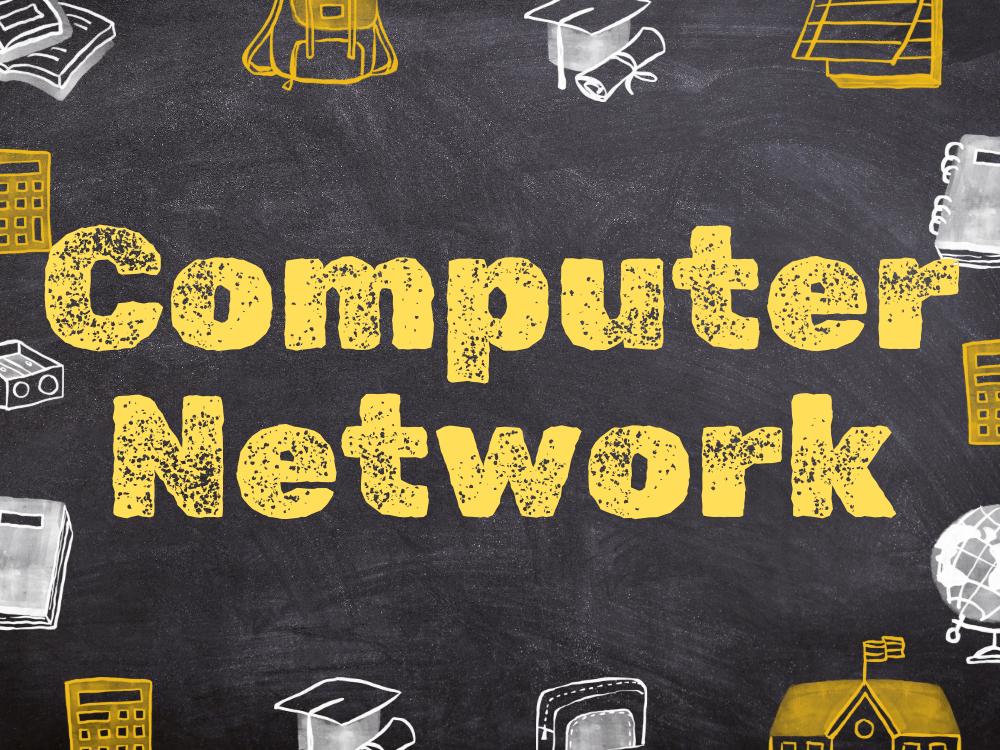Computer Network [Videos, Notes, Tests]

$11.9
$24.01
Description
Computer Network plays a vital role in connecting devices and facilitating communication and information sharing among them. This Computer Network course provides a comprehensive understanding of the fundamental concepts, protocols, and technologies that form the foundation of modern computer networks.
Prof. Hitesh Dholakiya is a seasoned computer scientist with over 15 years of experience in the field of Computer Networks. With a passion for teaching and a wealth of industry knowledge, Prof. Hitesh Dholakiya is dedicated to helping students achieve their academic and professional goals in Computer Networks.
This Computer Network course is specially designed for engineering students who want to understand how exactly computer Network works and is also helpful for working professionals. This Computer Network is a unique course in the online marketplace.
This course on Computer Network is beneficial to students of various branches such as Computer Science, Computer Engineering, Electronics, and Communication Engineering, IT Engineering as well as students from the Science and Diploma stream.
This Computer Network course serves as a valuable resource for both university students and working professionals alike, offering comprehensive insights into the fundamentals of computer networks.
This course on Computer Networks covers the following chapters.
1. Computer Network Fundamentals
2. OSI Model
3. Data Link Layer of Computer Network
4. Error Detection and Correction
5. LAN Protocols
6. Network Devices of Computer Network
7. Network Layer
8. Transport Layer
9. Application Layer
Topic wise Detailed Syllabus of Computer Networks is as follows.
1. Computer Network Fundamentals:
Computer Network Basics, Types of Data Communication in Computer Network, Types of Casting in Computer Network, Peer to Peer Network Vs Client Server Network, Types of Computer Network, Topologies of Computer Network, Hybrid Topology of Computer Network.
2. OSI Model:
Basics of OSI Model, OSI Model Details, Comparison of TCP and UDP, Comparison of OSI Model and TCP/IP Model, Transmission Medium in Computer Network, IP Address, MAC Address and Port Address.
3. Data Link Layer of Computer Network:
Data Link Layer Basics, Transmission Delay & Propagation Delay, Stop & Wait ARQ Protocol, Capacity of Channel in Computer Network, Sliding Window Protocol, Go Back N ARQ Protocol, Selective Repeat ARQ Protocol, Comparison of Sliding Window Protocol, Go Back N ARQ Protocol and Selective Repeat ARQ Protocol, Media Access Protocols, Channelization Protocols: FDMA, TDMA, CDMA, Polling Protocol, Reservation Protocol, Token Passing Protocol, Pure ALOHA, Slotted ALOHA, CSMA - Carrier Sense Multiple Access, CSMA/CD - Carrier Sense Multiple Access Collision Detection, Back off Algorithm for CSMA/CD, CSMA/CA - Carrier Sense Multiple Access Collision Avoidance.
4. Error Detection and Correction:
VRC - Vertical Redundancy Check & LRP - Longitudinal Redundancy Parity, Checksum, CRC - Cyclic Redundancy Check, Hamming Code for Error Correction and Error Detection, Minimum Hamming Distance, Error Detection Capabilities & Error Correction Capabilities.
5. LAN Protocols:
Framing, Ethernet LAN Protocol - IEEE 802.3, Wireless LAN Protocol - IEEE 802.11, Token Ring LAN Protocol - IEEE 802.5, Examples on CSMA Protocols, Examples on Flow Control Protocols.
6. Network Devices of Computer Network:
Repeater, Hub, Bridge, Switch, Router and Brouter, Comparison of Repeater Hub Bridge Switch Router and Brouter, Network Segment, Collision Domain & Broadcast Domain, Spanning Tree Protocol.
7. Network Layer:
Network Layer Basics, Why to do logical Addressing even Physical Addressing Exists in Computer Network, Classful Addressing of IP Address, Subnetting in Computer Networks, Classes Inter-Domain Routing - CIDR, Subnet Masking, Supernetting in Computer Networks, IPV4 Frame Format, Fragmentation in Computer Networks, IPV4 Broadcasting, Localhost and Loopback, ARP - Address Resolution Protocol, RARP - Reverse Address Resolution Protocol, BOOTP - Bootstrap Protocol, DHCP - Dynamic Host Configuration Protocol, Public IP and Privet IP, NAT - Network Address Translation, ICMP - Internet Control Message Protocol, Routing in Computer Network, Non Adaptive Routing, Distance Vector Routing, Link State Routing, Circuit Switching, Packet Switching and Message Switching in Computer Network, IPV6, IPV6 Casting, IPV6 Frame Format, Examples on Network Layer, Examples on Network Layer Protocols.
8. Transport Layer:
Transport Layer Basics, TCP Frame Format, Port Number & Network Socket, Sequence Number & Acknowledgment Number in TCP, Wrap Around Time and Life Time in TCP, Header Length and Checksum in TCP, TCP Connections, PSH URG RST Urgent Pointer, and Option Field in TCP, Flow Control in TCP Protocol, Sliding Window Protocol in TCP, Retransmission in TCP, Congestion Control in TCP, Timers in TCP, Basic Algorithm for Timeout Timer in TCP, Jacobson's Algorithm for Timeout Timer in TCP, Karn's Modification of Timeout Timer in TCP, Silly Window Syndrome and It's Solution in TCP, Congestion Control using Traffic Shaping in TCP, Leaky Bucket Algorithm, Token Bucket Algorithm, UDP - User Datagram Protocol, UDP Segment Header, UDP Frame Format.
9. Application Layer:
Application Layer Basics, DNS - Domain Name System, SMTP POP and IMAP in Computer Network, HTTP/HTTPs - Hyper Text Transfer Protocol, FTP SFTP and TFTP - File Transfer Protocols, Examples on Application Layer Protocols.
Enroll now and take the first step toward mastering Computer Network core concepts! Join Our Community of students who have transformed their careers with our expert-led course on Computer Networks!
See you in the Computer Network: A Core Fundamentals of Computer Networking course! You're going to love it!
[Validity of the course will be for 6 Months]
Thank you...
Loading...